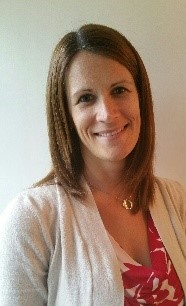25.10.19
Leading debate and manifesting change
Previously featured in NHE Sep/Oct edition
Dr Natalie Borman, care group director of the Wessex Kidney Centre at Portsmouth Hospitals NHS Trust, explains why we need to advocate grassroots collaboration on behalf of patients.
The last decade has been a challenging time for the NHS with an increased demand on services.
Funding solutions are of course needed. But whilst the NHS undergoes systemic modification, it cannot fall entirely on decision-makers to instigate meaningful change. Change must come from a grassroots level in order to be patient-centred.
I speak from the vantage point of launching the Home Therapies programme at Wessex Kidney Centre, alongside nurses, doctors and management. After almost a decade of having no patients on home haemodialysis (HHD), we now have one of the largest HHD programmes in the world with 85 patients receiving this therapy.
Starting from scratch, we achieved a thriving programme through perseverance, innovation and most importantly collaboration. Yet in the UK only 4.6% of dialysis patients haemodialysis at home, nowhere near the NICE guidelines of 10%.
Home haemodialysis is important as it can greatly improve a patient’s health and quality of life. But across the UK access varies, and there are still a number of places in UK where patients have no access to HHD and are not educated about the option.
We worked closely with our trust to facilitate a one patient pilot in 2009, approved on the basis of trialling the smaller NxStage machines that were new to the UK.
The health benefits of home haemodialysis lie in its frequency, but the business benefits are harder to quantify. Weekly tariffs could prompt some trusts to see cost savings in patients having dialysis only three times a week at home, instead of five to six times or nocturnal therapy which holds the greatest health benefits.
Home haemodialysis is an economy of scale, so requires a financial model that exists beyond a year-to-year time-frame, therefore relaying improved patient outcomes was key at the beginning. The model must incorporate savings holistically, not just those accountable to the renal department, such as pharmacy services, dialysis transport and those to wider health economy.
By 2015 we began to see significant savings, with the size of our home dialysis services negating the need for a new satellite unit. Without the need for the dialysis facility, resources can be used for training space and nursing staff required to support these patients at home whilst still realising financial savings for the NHS. With this business model, we are keen to share our success with other renal teams and empower them to do the same.

Dr Natalie Borman, care group director of the Wessex Kidney Centre at Portsmouth Hospitals NHS Trust, explains why we need to advocate grassroots collaboration on behalf of patients.
Successfully initiating the home haemodialysis programme involved the whole department. Collaboration encouraged enthusiasm in front-line staff and was crucial to implementation, as these are the patients’ trainers and support network.
Making the programme sustainable was no different, team members put HHD front of mind at the beginning of a patient’s care. Beginning patient education in pre-dialysis clinics, we could incorporate patient education into the dialysis assistant’s role, who would visit and access the homes of patients interested in transitioning.
The benefits of home haemodialysis occur when prescribing involves and integrates with patients’ lifestyles.
We worked with our MDT and patients to develop a clear patient pathway for HHD, including a traffic light system filtered by level of complexity and support required to individualise the service to the patients’ needs. Now we can offer the option of going home to those with complex needs, providing them greater freedom and control over their own health.
We continue to innovate through patient education by collaborating with other trusts, taking the NxStage campervan to sites so potential patients can see home haemodialysis in action. We attend conferences, roundtables and want to actively promote the success of our programme to others.
Through collaboration we have built one of the largest HHD programmes in the world, as well as a clinical and business case for HHD.
But the collaboration cannot stop here. We need to empower frontline clinicians to educate and support patients, sharing information and best practice. The NHS will reap the rewards as a result.